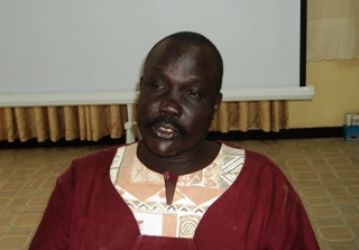Corruption no-go zone for South Sudan journalists: CPJ
March 31, 2012 (JUBA) — The recent fines slapped on two South Sudanese newspapers for allegedly defaming a senior member of the country’s ruling party cited in a $30 scam will deter journalists from further investigating corruption-related cases in the country, the Committee to Protection Journalists (CPJ) has said.

Failure to comply, the high court further ruled, would see the fine increase up to SSP 1,000,000 ($370,000) to be paid in three months.
Tom Rhodes, CPJ’s East Africa consultant said the odds of any journalists in South Sudan investigating the corruption case further are “slim”.
The two publications are seeking to rescind the court decision through an appeal.
“We are going to appeal this decision,” Nhial Bol, The Citizen‘s Editor told CPJ, adding that, “All we did was quote the former finance minister — there is nothing libelous about that.”
South Sudan attained independence in July 2011. In recent years, however, the relationship between the media and the state has been a fragile one in absence of laws to guide media operations.
Ngor Garang, a journalist with Sudan Tribune was on Friday barred from covering the final day of the SPLM National Liberation Council (NLC) meeting, with no proper reasons given for his expulsion.
This follows an incident in February in which Mading Ngor, a journalist with Bakhita
radio was assaulted in the National Legislative Assembly (NLA) and later banned from covering its proceedings.
A proposed media law, first introduced nearly five years ago, analysts say, would have provided an independent press ombudsman to mediate the case, but the law is yet to be passed.
(ST)
